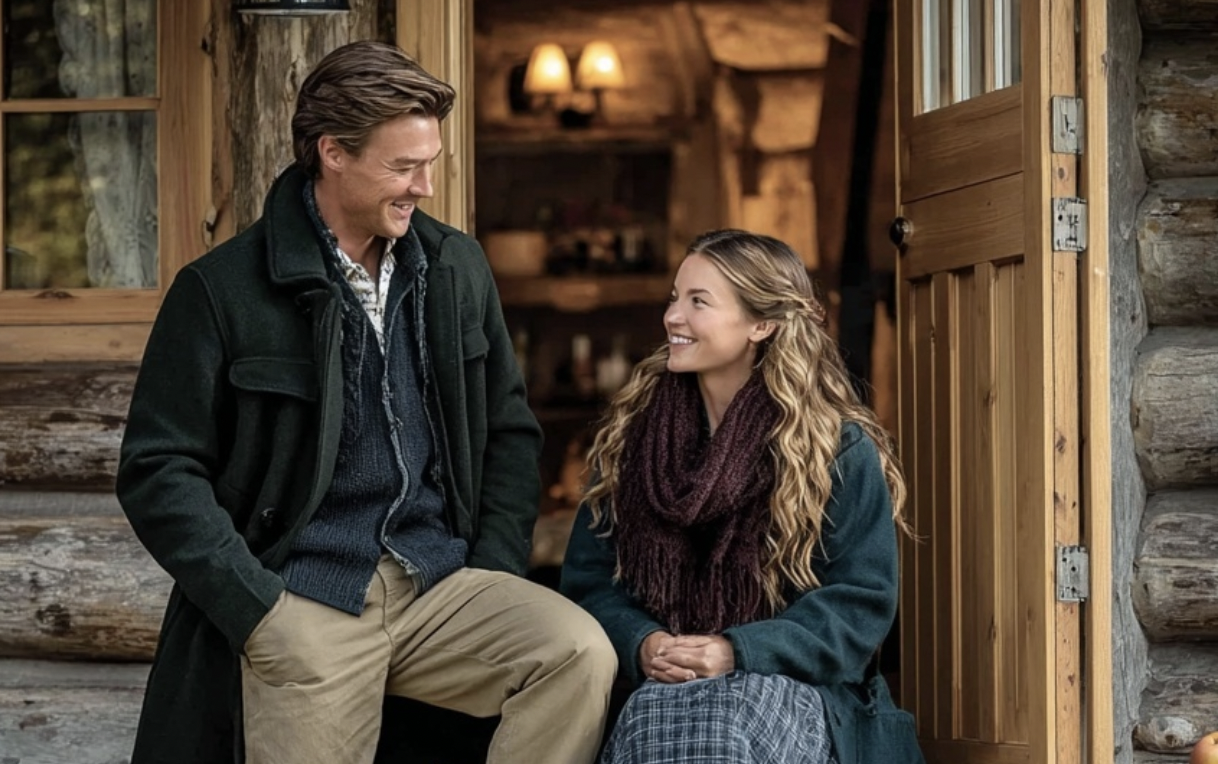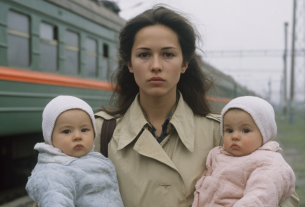It had been only three weeks since we buried our mother, and my brother had already called an appraiser for the house.
In the yard of our parents’ home in Volgograd, apples were dropping one after another, thudding dully against the ground. The house—a small two-room place from the 1970s with a wooden veranda—seemed smaller than it had in my childhood. But the thousand-square-meter plot had suddenly turned into an apple of discord between me and my brother Dmitry.
“Anna, let’s be practical,” he told me on the phone the day before. “You live in Moscow, I’m in St. Petersburg. Neither of us can move here. Why keep the house empty? Better to sell it and split the money.”
His logic was flawless—cool and rational, just like Dmitry himself always was. Selling did seem like the sensible thing to do. But how do you put a price on the place where you took your first steps, planted your first tree, where your parents spent their whole lives?
I sat at the kitchen table, its floral oilcloth faded with age, and flipped through an old photo album. My father, gone five years now, smiled from beneath his thick mustache in a snapshot from the summer of 1989. Next to him, my mother held a basket of apples and looked younger than I have ever been.
My phone vibrated. Dmitry.
“I talked to a realtor. He says we can ask seven million rubles for the house and the land. That’s a good sum, Anna. Think what you could do with half.”
“I need to think about it, Dima. It’s not an easy decision.”
“What is there to think about? The house is empty, it’s falling apart. Neither you nor I have time to come here. It’s irresponsible to leave it like this.”
He was right, of course. My life is in Moscow—with my husband, the children, and my office job. I’d come to Volgograd two or three times a year, and in recent years only to care for Mom when the illness confined her to bed. Dmitry showed up even less; St. Petersburg and the hectic life of a successful lawyer always took priority.
That evening I lit the stove and began sorting through Mom’s things. Her modest dresses, neatly hung in the wardrobe. The porcelain tea set that came out only “for special occasions.” A bundle of handwritten recipes kept in a cookie tin. Everything seemed to breathe her presence.
Among her things I found a yellowed envelope. Inside were the house papers and an unfinished letter addressed “To my children.” My mother’s handwriting—tidy, like she was—filled the page:
“My dears, by the time you read this, I’m probably gone. This house was my whole life and your father’s, too. Here we raised you, here we laughed and cried, here we grew old. It was never large or luxurious, but it was full of love. I know your lives are far away now, and maybe this house feels like a burden. But before you decide, remember something…”
The letter broke off, as if she hadn’t found the right words or hadn’t had time to finish.
The next morning Dmitry arrived in a new car and parked by the gate. I watched him from the porch, struck by how out of place he looked here. His expensive suit didn’t fit the simplicity of the yard where we used to run barefoot.
“I brought the agreement for the appraiser,” he said instead of hello.
Wordlessly, I handed him yesterday’s letter. He read it without changing his expression.
“It’s not finished,” he noted.
“No. Neither is our conversation about what to do with the house.”
We walked into the yard among the fallen apples and the garden beds our mother tended until the very end. The little orchard behind the house, where our father once built us a swing, had grown over.
“Remember how we fought over it and both fell off, and you broke your arm?” I asked.
A brief smile flickered across his face. “And Dad took us to the hospital on his bicycle—you in his arms, and me behind, bawling louder than you.”
Unexpectedly, we laughed, recalling forgotten scraps of childhood. The surprise for Dad’s fiftieth when the cake slid off the table. The first time Dima got drunk on homemade liqueur. Winter evenings by the stove, the four of us together.
Only those who’ve lived through it in Russian families will understand the weight of emotion a parents’ home carries, and how hard it is to part with it—especially when siblings can’t agree.
After a few hours of reminiscing, Dmitry stood and looked around, as if seeing the house for the first time.
“Let’s not sell it,” he said suddenly.
I stared at him, surprised. “But you said it was irresponsible to leave it.”
“Yes—if we let it crumble. What if we fix it up? It could be a place we bring the kids for the holidays, where we meet for celebrations. A place that stays in the family.”
His proposal caught me off guard. Dmitry—the practical one—was suggesting we keep the house for sentimental reasons?
“That will take money, time, effort,” I said.
“We’ve got all three. Maybe it’s time to invest not only in our children’s future, but in our roots.”
In the months that followed, we began the renovations. We kept the stove, and the beam where our father marked our height each year. We updated the kitchen and bathroom, installed heating, and turned the attic into bedrooms for the kids.
At Christmas we all gathered here—Dima with his wife and son, me with my husband and daughters. We decorated a fir tree in the yard like we did as children and baked pies from Mom’s recipes.
While the kids played in the snow, Dmitry and I sat on the porch looking out at the familiar view.
“Do you think we made the right choice?” he asked.
I glanced at the kitchen window where our families’ shadows moved as they prepared the holiday table, and at the children rolling a snowman in the same spot we had thirty years ago.
Isn’t this one of modern Russia’s great losses? Parents’ homes that once bound generations together have become mere square meters, sold off with no thought for their true worth.
“I think Mom would have finished her letter this way—she would have said that the real inheritance isn’t the price of the house, but the memories and bonds that are forged here.”
Dmitry nodded and raised his mug of mulled wine. “To our parents’ home,” he said. “And to those who understand that some things can’t be measured in money.”



